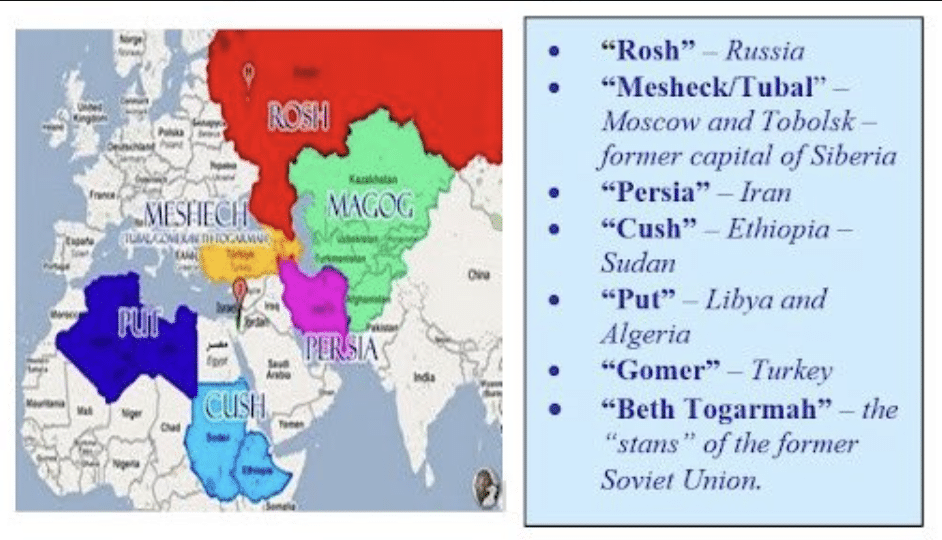PRAYER UPDATE FROM ISRAEL 2 OCTOBER 2018 via Martin & Norma Sarvis
בראשית
Beresheat—“In the Beginning”
THIS WEEK’S TORAH PORTION:
From ancient times there has been a weekly portion (Parashah) from the first five books of Moses (The Torah) and an ending (Haftarah) from the Prophets read on the Sabbath in synagogues around the world. This portion is given a Hebrew name drawn from the opening words of the Torah passage. An illustration of this practice appears to have been recorded in Luke 4:16 where Yeshua (Jesus) arrived in the synagogue in Nazareth and was asked to read the portion (Isaiah 61) from the Prophets. We have found that in perusing these weekly readings, not only are we provided opportunity to identify in the context of God’s Word with millions of Jewish people around the world, but very often the Holy Spirit will illumine specific passages pertinent that week in our intercession for the Land and people of Israel. All texts are those of English translations of the Scriptures.
1-6 October 2018
The NEW CYCLE BEGINS!
This weekend the cycle through the Torah begins anew. This first reading is called Beresheat—“In the Beginning.”
TORAH: Genesis 1:1—6:8
HAFTARAH : Isaiah 42:5—43:10
TORAH
*Genesis 1:1-5. “In the beginning Elohim (English: God) created the heavens and the earth. The earth was without form, and void; and darkness was on the face of the deep. And the Spirit of God was hovering over the face of the waters. Then Elohim said, “Let there be light; and there was light. And Elohim saw the light, that it was good; and Elohim divided the light from the darkness. Elohim called the light Day, and the darkness He called Night. And there was evening and there was morning, one day.”
As we open to the first chapter of this divinely–breathed (II Timothy 3:16) book, ELOHIM—GOD is simply there–creating. The SPIRIT of God is there (vs 2). And as God speaks, His living WORD is there (Vs 3; John 1:1). Elohim is a Hebrew word translated into English God. It is a plural word, which could be translated “gods” or “exalted beings”—yet, when referring to the Hebrew God Who is over all, it is always accompanied with a singular verb.
*Genesis 1:3. “God said: ‘Let there be light!’ And there was light.”
The Scriptures do not say that God “created” light (God Himself is light, I John 1:5). Rather, He spoke it forth—“Be light!”—and it was released into His creation! John 1:1-9 speaks of Yeshua as being God’s Word, in whom was life “which is the light for men”.
There are a number of words used for God’s actions during these early “beginnings” chapters: creating (from nothing that is seen, Hebrews 11:3); making; building; fashioning or shaping (out of something already created); working (Interestingly, for bringing into being the “adam” (man) in His image, both the acts of creating and fashioning are used (Genesis 1:2, 2:7).
*Genesis 1:5. “And there was evening and there was morning, one day.”
Today, in Israel all days for religious observance (such as the Sabbath or feast days) are reckoned from sundown the evening before rather than sunrise.
*Genesis 1:6-8. “Then Elohim said, ‘Let there be an expanse in the midst of the waters, and let it separate the waters from the waters.’ Elohim made the expanse, and separated the waters which were below the expanse from the waters which were above the expanse; and it was so. God called the expanse ‘sky’, and there was evening and there was morning, a second day.”
It is perhaps better to translate the Hebrew for what God called the expanse “sky” rather than “heaven.” In English, the same word (“heaven”) is used for both the sky and for the place where godly persons go after death. In Hebrew thinking, the godly person after death goes to Gan Eden (the Garden of Eden; Paradise). In fact, in the Hebrew translation of Luke 23:43, Yeshua tells the thief hanging next to Him on the cross, “Amen. I say to you, today you will be with Me in Gan Eden.”
But “sky” is shama’im. Shama’im bears within it the word for water—ma’im. One theory, held among those who take literally this Scriptural account, is that God called the sky “Shama’im” because, in accordance with what is described in the passage above, what one saw when looking upwards through the expanse would have been water—an envelope of clear water above, circling the earth (through which could be seen the sun, moon and stars). Between the waters above and the waters and dry land below, was a canopy of air (the ESV translation offers the word “canopy” as an alternate translation for “expanse” or “firmament”). Perhaps this envelope of water, filtering the rays from the sun, would account for the enormous life spans of humans described by the Bible as dwelling on Earth before the Flood. If this viewpoint is correct, the waters above the earth would be the “great deep” from which fountains burst forth when the windows of the heavens were opened and water covered the earth in Noah’s day (Genesis 7:11; Next week’s Torah Portion).
*Genesis 1:27. “So God created man in His image, in the image of Elohim He created him; masculine and feminine He created them.”
“Man” in Hebrew is adam (pronounced, a’Dahm). In Genesis 2:7, we are shown that Elohim formed the adam out of adamah—“earth” (which, in turn, is adomah—“reddish in colour”). The modern-day Hebrew term for “human beings” is still benei-adam—“son (or child) of adam.” From this passage it is clear that God, although always referred to in the masculine gender, bears, nevertheless, within His nature both the masculine and feminine which is transferred into the nature of those created “in His image”.
By the end of Chapter 3 that image is marred and what had received the breath of life is, because of sin, already dying. In 4:1 the man and woman have begun to reproduce, and realize that their Creator and the One through whom this new life comes has a name, YHVH (Yehovah, “The LORD”). Their sons bring offerings to this YHVH (4:3). Yet it will be many generations before Humankind comes to know and use that Name in a personal and intimate sense (Exodus 3:15b; 6:2-3).
In Genesis 4:8 murder is committed, and Abel, a good man whose sacrifice pleased God, becomes the first man to die. It is notable that Abel’s name in the Hebrew is spelled the same as the Hebrew word for “vapour” or “vanity” (This word both begins and permeates the book of Ecclesiastes which we have been reading during the feast of Succot.). Life is but a vapour which is here and passes away; the lives of Abel the good and that of Cain the wicked are both temporary.
*Genesis 2:24. “Therefore a man (Hebrew: ish) shall leave his father and mother and be joined to his woman (Hebrew: isha), and they shall become one flesh.”
Here the Creator lays out clearly right at the beginning His ordained order for his human creatures’ being joined together in what we call marriage (His Son, the Messiah Yeshua, would corroborate this in Matthew 19:4-6). Attempting to become ‘one flesh’ in any other kind of relationship besides “man and woman”steps outside of this ordained order, and is strictly forbidden for all humankind (Leviticus 18:22-23; 20:13,15; Romans 1:26-27). The holy alternative “for the sake of the Kingdom of Heaven” is celibacy (Matthew 19:12).
*Genesis 4:26. “And as for Seth, to him also a son was born; and he named him Ehnosh.”
It was perhaps with an awareness of the death of his brother Abel, as well as of the sin-sickness obviously at work in his eldest brother Cain that Seth chose to name his first son Ehnosh. Ehnosh is often translated into English “man” (Psalm 8:4, “What is man (ehnosh) that You are mindful of him, and the son of man (ben-adam) that you visit him?”). The most-used word for “people” is anashim—a plural of enosh. But at its root, the word more literally means “mortal”. Just as English “mortal” has to do with that within man which dies (“mortuary” is related to that word), so ehnosh has within it a reference to the fallen effect of sin in the children of Adam. Ehnush, a word using the same Hebrew letters, appears in Jeremiah 17:9 where it says that the heart is deceitful above all things and “desperately wicked” (NJKV), “desperately sick” (ESV and NAS), “beyond cure” (NIV).
By Genesis 6 the earth is corrupted through sinful man in conjunction with rebellious angelic beings. “Then YHVH saw that the wickedness of man was great in the earth, and that every intent of the thoughts of his heart was only evil continually…So YHVH said, ‘I will blot out the man (Hebrew: the adam) whom I have created from the face of the earth (Hebrew: the adamah).’
But Noah found grace in the eyes of the LORD!”
(6:5,7a, 8)
To “find grace in the eyes of” is an expression which is still common in Modern Hebrew, meaning “to bring pleasure to” or, “to find favour in.”
PLEASE PRAY: that today, when “as it was in the days of Noah” (Matthew 24:37), we are faced with a rapidly rising darkness of evil on the earth, there will also arise, not one, but a multitude of latter-day “Noah’s”—who will bring pleasure to their LORD, who will “walk with God”, who will “find grace in His eyes.”
The English translation of a popular Hebrew worship song, written some years ago by an Israeli Messianic teenager reads:
Come Spirit, Come Spirit, Come today
The Desire of my heart is to find grace in your eyes
The desire of my soul is to be more like you
Come God, Dwell within me, Make me pure
Focus my eyes on what pleases You that I may be devoted to You
—Boi Ruakh. ©2004 by Keren Seguin
HAFTARAH
*Isaiah 42:5-7. “Thus says God the LORD, Who created the heavens and stretched them out, Who spread forth the earth and that which comes from it, Who gives breath to the people on it, and spirit to those who walk on it: ‘I, YHVH, have called you in righteousness, and will hold your hand; I will keep you and give you as a covenant to the people, as a light to the Gentiles, to open blind eyes, to bring out prisoners from the prison, those who sit in darkness from the prison house.’”
*Isaiah 43:1-3b. “But now, thus says the LORD, who created you, O Jacob, and He who formed you, O Israel: ‘Fear not, for I have redeemed you; I have called you by your name; You are Mine. When you pass through the waters, I will be with you; and through the rivers, they shall not overflow you. When you walk throu8gh the fire, you shall not be burned, nor shall the flame scorch you. For I am the LORD your God, the Holy One of Israel, your Saviour.”
*Isaiah 43:5-7. “Fear not, for I am with you; I will bring your descendants from the east, and gather you from the west; I will say to the north, ‘Give them up!’ and to the south, ‘Do not keep them back!’ Bring my sons from afar, and my daughters from the ends of the earth—everyone who is called by My name, whom I have created for My glory; I have formed him, yes, I have made him.’”
*Isaiah 43:10. “‘You are my witnesses,’ says the LORD, ‘and my servant whom I have chosen, that you may know and believe Me, and understand that I am He. Before Me there was no God formed, nor shall there be after Me.’”
Martin and Norma Sarvis
Jerusalem
[The readings for next week (7-13 October) are called No’akh—“Noah”. TORAH: Genesis 6:9—11:32; HAFTARAH: Isaiah 54:1—55:5. Wednesday 10 October will be Rosh Hodesh—the first day of the Eighth Month in the Hebrew Calendar (Cheshvan)]







Leave A Comment